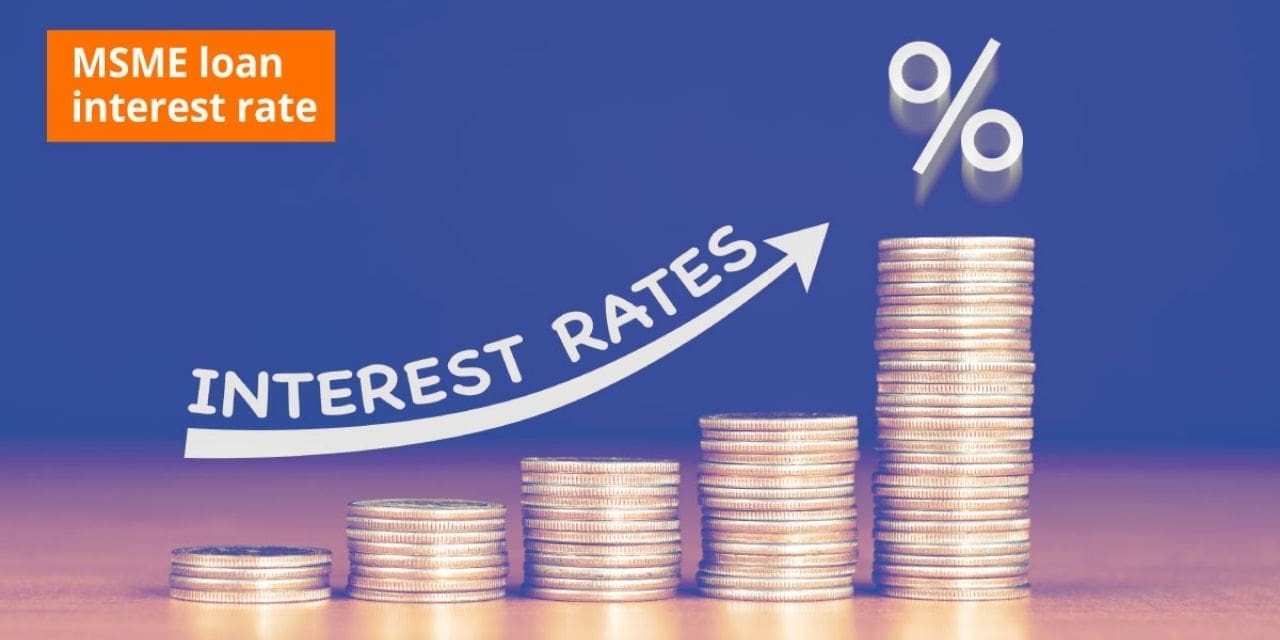India’s economy is enriched by Micro, Small, and Medium Enterprises (MSMEs) that contribute significantly to employment, innovation, and economic diversity. For many MSMEs, financing through bank loans can be a major turning point for growth, expansion, or even survival.
However, the interest rates on MSME loans can vary widely based on multiple factors, directly impacting the affordability and attractiveness of these loans. Understanding the elements that influence MSME loan interest rates can help businesses make more informed financing decisions.
Key Elements Influencing MSME Loan Interest Rates
When seeking loans, MSMEs often discover that loan interest rates aren’t uniform. Financial institutions like the MSME bank may determine loan rates based on a range of parameters, from economic conditions to an individual business’s financial health. Here, we break down the core factors influencing MSME loan interest rates.
- Credit Score and Financial Health of the Business
An MSME’s credit score plays a crucial role in determining the loan interest rate. Businesses with higher credit scores typically have lower risk profiles, making them more appealing to banks.
As a result, MSMEs with a strong credit history are often offered lower interest rates. In contrast, those with a lower credit score may face higher interest rates because they are seen as a bigger risk.
- Economic and Market Conditions
Economic stability and overall market conditions significantly impact MSME loan interest rates. During periods of economic growth, banks might be more open to lending, often reducing rates to attract more borrowers.
Conversely, during economic downturns, banks may increase interest rates to balance the risks associated with lending. Changes in the Reserve Bank of India’s (RBI) repo rate also affect MSME loan interest rates; when the RBI reduces the repo rate, MSME bank rates tend to drop, making loans more affordable and vice versa.
- Loan Tenure and Amount
The loan’s tenure, or repayment period, is another key factor in setting interest rates for MSMEs. Generally, shorter-term loans come with higher interest rates, while longer tenures might offer slightly lower rates, albeit with more interest paid over time.
Likewise, the loan amount affects the interest rate. Small loans may come with higher rates to offset risk, while more substantial loan amounts could have lower rates, as larger loans are often extended to more established MSMEs.
- Business Industry and Sector-Specific Risk
Different industries carry varying levels of risk, and this can influence MSME loan interest rates. For example, sectors prone to economic cycles, like real estate or manufacturing, may face higher interest rates due to potential volatility.
On the other hand, MSMEs in stable or high-growth sectors such as healthcare and information technology might access loans with lower rates due to their resilience and growth potential.
- Collateral and Security
Banks often offer secured loans (loans backed by collateral) with lower interest rates because the risk is shared. MSMEs that can offer collateral such as property, machinery, or equipment tend to secure better loan terms.
For instance, an MSME bank may reduce interest rates by 1-2% if a loan is backed by strong collateral, as this reduces the bank’s exposure to potential defaults. Unsecured loans, which are not backed by any collateral, generally carry higher interest rates to cover the increased risk.
- MSME Business Performance and Profitability
An MSME’s financial performance, including revenue, profitability, and cash flow, significantly influences loan interest rates. Well-performing businesses with stable cash flow can negotiate lower rates because they present a lower default risk to lenders.
To assess financial health, banks review annual reports, tax filings, and projected revenue. Small businesses that consistently demonstrate profitability are better positioned to secure lower rates as they provide more security for repayment.
4 Ways to Secure Lower MSME Loan Interest Rates
Understanding the factors that affect loan rates is the first step in securing a loan that aligns with a business’s financial goals. Here are several approaches MSMEs can consider to improve their chances of accessing competitive interest rates.
- Improve Your Credit Score
One of the most effective ways to lower MSME loan interest rates is by maintaining a strong credit score. Regularly monitoring credit reports and ensuring timely repayment of current debts can gradually improve a business’s credit standing, opening the door to better loan rates.
- Opt for Collateral-backed Loans
Where possible, MSMEs can opt for secured loans by offering collateral. This added security often results in lower rates, as it reduces the lender’s risk. Businesses can use assets like property or equipment as collateral, ensuring they qualify for more favourable terms.
- Shorten Loan Tenure When Possible
Though a longer loan term might reduce monthly payments, choosing a shorter tenure can lower the interest rate on MSME loans. MSMEs should weigh their cash flow capabilities and aim to repay the loan over a shorter period.
- Evaluate Various Lenders
Comparing lenders is essential for any business. MSME bank loans can vary widely in interest rates and terms, depending on the lender’s policies and the loan product. By shopping around and comparing rates from different financial institutions, MSMEs can secure the most competitive rates available.
Securing the Best MSME Loan Rates for Your Business
Securing an MSME loan with the best possible terms involves a combination of planning, financial health, and knowledge of available options. The primary factors influencing MSME loan interest rates range from personal credit scores to broader economic conditions, all of which can vary based on the bank’s lending policies. By taking steps to improve financial standing, leveraging government incentives, and building a strong banking relationship, MSMEs can secure favourable terms that support their growth journey.
For MSMEs seeking a trusted partner in banking, you may consider banking services like HDFC Bank. They offer various loan solutions tailored to meet the needs of MSMEs. With competitive interest rates and specialised support, they aim to empower Indian businesses to thrive and expand in a competitive market.

